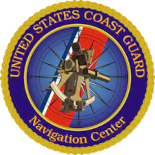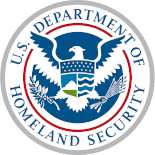Although telecommunications technology is improving quickly, people at sea do not have access to the same telecommunications infrastructure people ashore have. Like people ashore, Mariners need to access international shore telephone and data public switched networks. Additionally they need to access many maritime specific communications listed below:
- Mariners need to be able to communicate with other ships of any size or nationality.
- Mariners need to be able to receive and send urgent maritime safety information.
- Mariners need to be able to send or receive distress alerts in an emergency to or from rescue coordination centers ashore and nearby ships anywhere in the world.
Maritime telecommunications systems must be internationally interoperable. Bringing new telecommunications technology to mariners can be difficult, since to be interoperable, the technology must be affordable, acceptable and available to most ships and maritime countries.
The Coast Guard does not advocate cellular telephones as substitute for the regular maritime radio distress and safety systems recognized by the Federal Communications Commission and the International Radio Regulations -- particularly VHF maritime radio. However, cellular phones can have a place on board as an added measure of safety.
CELLULAR PHONE LIMITATIONS IN AN EMERGENCY
- The Coast Guard does not endorse cellular phones as a primary means of distress notification in the maritime environment. Cell phones have several shortcomings in the maritime environment that can delay search and rescue authorities.
- During a search and rescue (SAR) case, the Coast Guard attempts to broadcast as much information as possible about the case. These broadcasts provide information to mariners that may be in the vicinity of the SAR case so that they can respond appropriately. A cell phone limits communications between the Coast Guard and the mariner in distress, because other possible rescuers in the area are not immediately made aware of the SAR case. In contrast, a marine radio call allows all other mariners in the area to overhear the distress call and respond if possible.
- Most cellular phones are designed for a land-based service. Their offshore coverage is limited and may change without notice.
- Locating a cellular caller can be difficult. If you don't know your position precisely, the Coast Guard may have difficulty locating you.
(Ref. U.S. Coast Guard -- CONSUMER FACT SHEET)
Two United Nations-chartered organizations, the International Maritime Organization and the International Telecommunications Union, are responsible for defining and regulating maritime telecommunications systems. The most current system adopted by these two organizations is the Global Maritime Distress and Safety System, or GMDSS. Morse wireless telegraphy, used by ships for distress and safety communications since the beginning of the century, was discontinued by the USCG in 1995, and ceased worldwide on February 01, 1999. Many people owe their lives to this system.
The links on the left will lead you to several informative sections regarding Maritime Telecommunications, including the Universal Shipborne Automatic Identification System, Digital Selective Calling, the Global Maritime Distress and Safety Systems, and much more.


